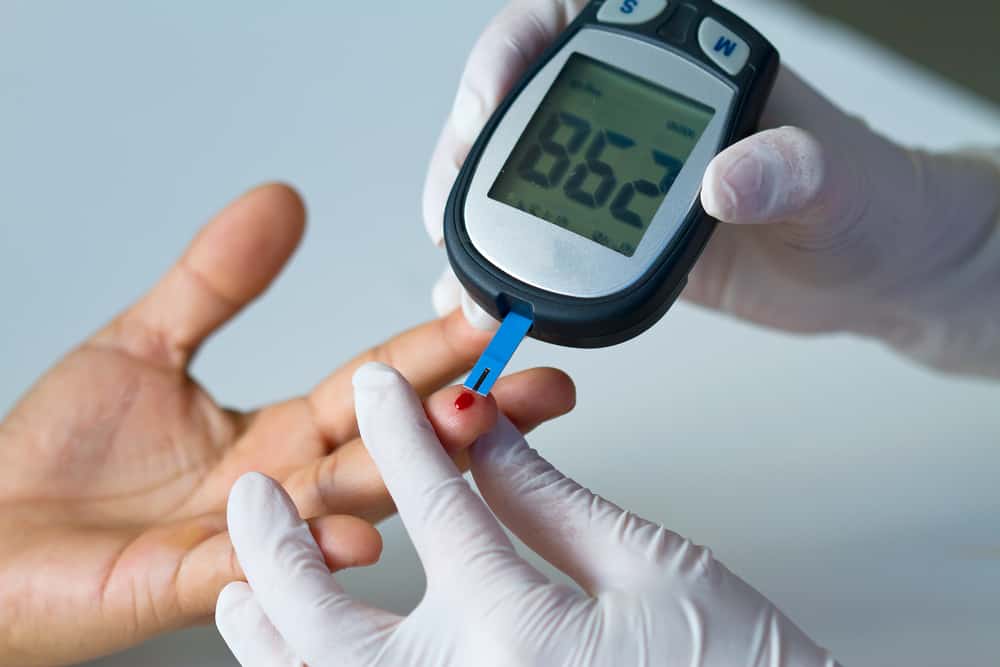Contents:
- Medical Video: WHAT THEY DON'T TELL YOU ABOUT TRANSPLANT! KIDNEY TRANSPLANT RECIPIENT!!
- What is a kidney transplant?
- What do I need to know before receiving a kidney transplant?
- What should I do before undergoing a kidney transplant?
- How is the kidney transplant process?
- What should I do after undergoing a kidney transplant?
Complications
What complications can occur?- Hello Health Group does not provide medical advice, diagnosis or treatment.
Medical Video: WHAT THEY DON'T TELL YOU ABOUT TRANSPLANT! KIDNEY TRANSPLANT RECIPIENT!!
Definition
What is a kidney transplant?
Kidney transplantation is an operation to transfer healthy kidneys from donors to recipients. Recipients are usually patients who experience chronic kidney failure. The kidneys are organs that function to remove impurities from the blood. If the kidneys do not function properly, dirt will accumulate in the blood and can cause complications in the body.
There are several causes of chronic kidney failure. Causes can include:
- type 1 or type 2 diabetes
- high blood pressure
- glomerulonephritis, inflammation of the filter unit in the kidney (glomeruli)
- interstitial nephritis, inflammation of the renal tubules and surrounding structures
- polycystic kidney disease
- urinary tract problems, such as enlarged prostate, kidney stones and cancer
- vesicoureteral reflux, a condition that causes urine to rise to the kidneys
- kidney infection or pyelonephritis
In general, kidney transplants can prolong a person's life and make life healthier.
When do I need to undergo a kidney transplant?
The doctor will evaluate your condition. You can receive a kidney transplant, with the following conditions:
- you are in good health for surgery
- the benefits of kidney transplantation outweigh the risks
- You have tried another treatment and failed
- You understand the risk of complications
- you understand that you will take immunosuppressant drugs and have a follow-up meeting
If you have questions, consult your doctor for more information. It is important for you to discuss all possible treatment options.
Prevention & warning
What do I need to know before receiving a kidney transplant?
There are several reasons why kidney transplantation might not be the right choice for you. Inform your doctor if you have:
- ongoing infection (infection must be treated first)
- heart disease
- liver failure
- cancer that has spread to the body (metastatic cancer)
- AIDS (the most serious stage of HIV infection)
You must understand that kidney transplants take a long time. You may have to wait for the donor kidney to be available to you. The kidney must also suit you. Donors must have the same network type and blood type as you. These things can reduce the risk of your body rejecting the kidney.
Kidney transplantation is a major surgical procedure with various risks. Due to the risk of future problems, donor recipients are required to carry out routine check-ups for some time.
It is important that you understand the warnings above before running this test. If you have questions, consult your doctor for further information and instructions.
Process
What should I do before undergoing a kidney transplant?
Before undergoing a kidney transplant, you will be evaluated by a transplant specialist. Your specialist will make sure you are a suitable candidate for kidney transplant. You need to visit several times in a few weeks or months. You also need to take blood and x-rays.
The tests needed before the procedure include:
- tissue tests and blood type to ensure the body does not reject the kidneys
- blood or skin test to check for infection
- liver tests such as EKG, echocardiogram or cardiac catheterization
- test to detect cancer
You can consider several hospitals specializing in transplants to choose the best hospital for you.
Ask the specialist how many transplants have been done per year and their survival rates. Compare with several other specialists.
Ask about the support groups they provide.
If your specialist sees you as a suitable candidate for a kidney transplant, your name will be entered on the waiting list.
Your order on the waiting list depends on a number of factors, such as the type of kidney problem, how severe your kidney disease is, and the possibility of a successful transplant.
For adults, how long you are on a waiting list does not determine how fast you will get a kidney. If the donor is suitable, you can receive a transplant faster.
As long as you wait for a kidney donor, you are recommended to:
- follow the recommended diet
- do not consume alcohol
- do not smoke
- maintain recommended weight
- consume the prescribed medicines for you. Report changes to the medical team if you experience changes or problems after taking the drug
- make regular visits to the hospital. Make sure the transplant team has your telephone number so you can contact you immediately if a donor kidney is available. Make sure you can be contacted easily.
- preparing the need to be taken to the hospital
How is the kidney transplant process?
Kidney transplant recipients will be given anesthesia before the operation is carried out.
The surgeon will make an incision in the lower part of the abdomen. Then he will put a new kidney in the lower part of the stomach. New kidney arteries and veins are connected to arteries and veins in the pelvis. Blood flows to a new kidney, which will process urine like how your old kidney works. The urinary tract (ureter) is then placed in your bladder.
Your old kidneys will be left unless they cause other problems such as high blood pressure, infection, or too big for your body. The incision will then be closed.
Kidney transplant surgery usually lasts for 3 hours.
What should I do after undergoing a kidney transplant?
After the transplant process, you will usually stay in the hospital for 3 to 4 days for recovery. The doctor will follow up on your recovery process.
After being discharged from the hospital, you are recommended to stay close to the hospital for 2 to 3 weeks so that your transplant specialist can monitor your new kidney function and recovery process.
Your transplant specialist will inform your doctor about your treatment progress and recommendations at home. You are recommended to have regular meetings with your doctor.
You need to take immunosuppressant drugs to keep the body from rejecting the kidneys. The transplant team will explain the medicines in detail to you.
Your transplant specialist will provide some instructions for your recovery period, such as planning exercise and nutrition. Your doctor will help you choose a healthy lifestyle so that the transplant results are optimal.
After a kidney transplant is successful, you need to take further action with your doctor and medication according to your doctor's advice.
If you have questions, consult a doctor or expert to understand further.
Complications
What complications can occur?
Although the number of serious complications has dropped dramatically in recent years, kidney transplants - and other types of surgery - do not mean without risk.
The risk of kidney transplantation can arise from the following factors:
- risk associated with operating procedures
- risk associated with using immunosuppressant drugs (drugs that reduce immune system activity)
- risk of problems with transplanted kidneys
Some complications occur in the first few months after transplantation, but complications can still occur after several years.
Short-term and long-term complications of kidney transplants will be as follows.
Short term complications:
- blockage of blood vessels
- blockage or leak in the ureter
- work delay in the kidneys
- acute rejection of the kidneys
- infection
- fluid collection
- temporary damage to the nerves
- transfer of cancer or infection.
Long-term complications:
- kidney failure
- blockage of the ureter
- narrowing of the arteries that supply the kidneys
You can minimize the risk of complications by following instructions from a doctor before surgery, such as fasting and stopping taking certain drugs.
If you have questions about possible complications, consult your doctor for more information.











